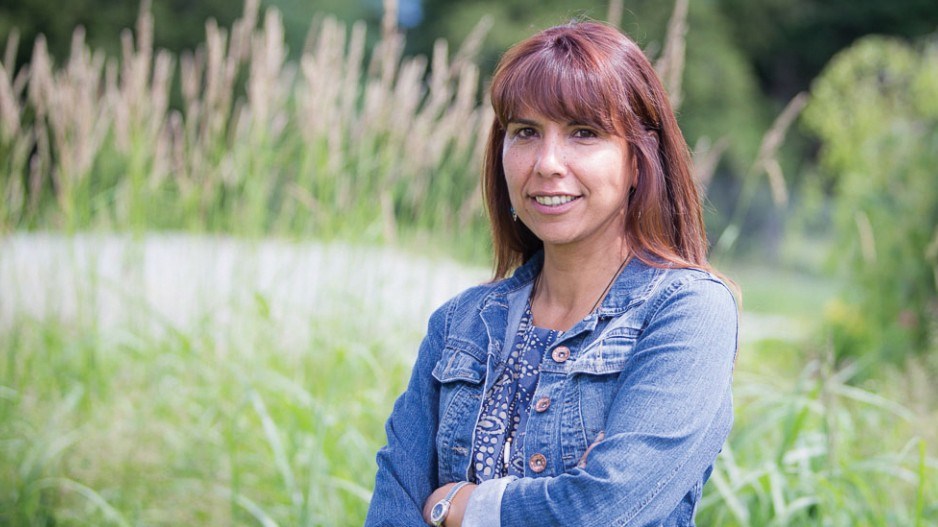The traditional economy of the Sekw’el’was, also known as the Cayoose Creek Indian Band, revolved around the salmon that travelled up Bridge River to spawn.
“In our area, it was like our gold,” said Sekw’el’was Chief Michelle Edwards.
“Everyone came to the St’at’imc territory to trade, and that was because we had dried salmon and you could keep it all year round. We hosted probably some of the largest trade gatherings in the world at the time back then, and the evidence is everywhere.”
That lifeline was disrupted when BC Hydro started damming the river in the 1940s. By the mid-1950s, three dams had been built, reducing the river’s salmon run by over 90%.
“That was a huge impact, not only for our way of life but what it provided to the wildlife, what it provided as nutrients to the rivers – these dams did a lot of damage,” Edwards said.
Starting in 1992, the bands in the region (known collectively as the St’at’imc) started negotiations with BC Hydro for compensation. They were finally completed in 2011 with a $200 million settlement among 11 bands. Sekw’el’was’ share was $5 million.
Edwards is determined to make the most of that $5 million to create business and employment opportunities for her Lillooet-area community of 196 members.
Since 2011, the band has focused on acquiring existing businesses that do the kind of work BC Hydro often tenders in the region. So far, the band has bought cartage company Cayuse Flats and Antares Project Services, a construction company. It also owns Splitrock Environmental, an environmental restoration company.
The companies are held by the band’s economic development corporation.
“We were building capacity to get into work, knowing that we had a very significant agreement in front of us that we knew we would be eventually ratifying,” Edwards said.
The band has concentrated on buying businesses in Lillooet that have a good reputation and are often already doing work with BC Hydro. Examples include a 30-year-old business whose owner was ready to retire and was looking to sell.
Even with that conservative strategy, Edwards said it has often been difficult to get work.
“Buying an engineering company, that was a risk for us to take, even at the time knowing we may have a harder time getting into industry being aboriginal-owned. But I think once we started putting the facts in front of them – we have people working for us who worked for Hydro before, so they should be very confident that the people we have staffed are going to be able to come in and do the work.”
The band’s economic development corporation also recently got a contract with the Ministry of Transportation to rebuild the Lillooet Station Bridge.
Its business game plan is to cultivate opportunities in the private sector from the work it secures with the province and BC Hydro.
“We know we have to look outside of our territory,” Edwards said.
Edwards hopes the acquisition of the businesses will inspire her community’s young people to train for the kind of job opportunities that are available in their traditional territory. She recalled that when she was young, she had no idea that work might be available with BC Hydro.
“We provide [high school students] summer employment and looking at [whether] they want to be mentored by some of the businesses that we own,” Edwards said. “What we’re going to be able to provide for them is super. I wish I’d had those opportunities when I was growing up.”




